#GeopoliticalShifts
Explore tagged Tumblr posts
Text
Global Oil Markets Plummet: Analyzing the 7% Price Drop and Its Far-Reaching Implications
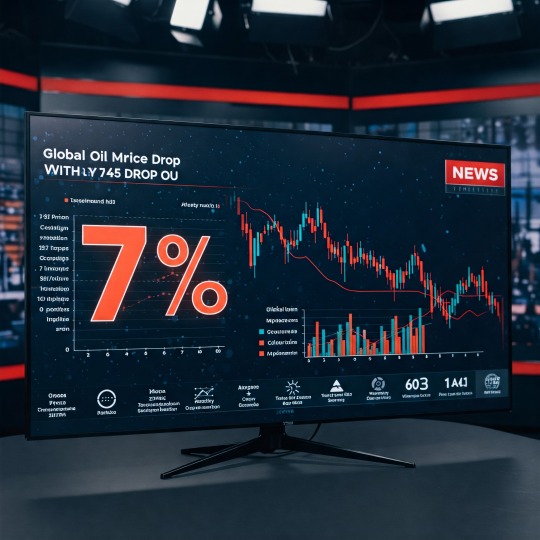
Key Points
Research suggests the 7% oil price drop on April 4, 2025, was driven by OPEC+ increasing output and global trade tensions, with U.S. policies under Trump boosting production.
It seems likely Trump's "drill, baby, drill" approach contributed to a global oil surplus, impacting prices.
The evidence leans toward economic challenges for oil-dependent nations and potential relief for consumers, with geopolitical shifts possible.
Background
On April 4, 2025, global oil markets experienced a significant 7% price drop, with Brent crude settling at $65.58 a barrel, marking a four-year low. This event was influenced by multiple factors, including a surprise output increase by OPEC+, escalating global trade tensions due to U.S. tariffs, and robust U.S. oil production under President Donald Trump's energy policies. This essay explores these dynamics, providing a comprehensive analysis for a general audience.
Causes of the Price Drop
The immediate trigger was OPEC+'s decision to triple its planned output hike for May, aiming to lower prices and address members exceeding quotas. This move added to a global oil surplus, with non-OPEC+ production, especially from the Americas, expected to grow significantly in 2025. Simultaneously, U.S. President Donald Trump's tariffs, including a 34% tariff on Chinese imports, escalated trade tensions, threatening global economic growth and reducing oil demand. These factors combined to create downward pressure on prices, with Brent crude hitting $64.03 at its session low.
U.S. Role and Trump's Policies
Central to this scenario is the United States, which, under Trump's "drill, baby, drill" policy, has prioritized fossil fuel production. Trump's administration declared a national energy emergency and eased regulations, boosting exploration on federal lands. According to the U.S. Energy Information Administration (EIA), U.S. crude oil production is forecasted to average 13.59 million barrels per day in 2025, making it the world's top producer. This surge, particularly from regions like the Permian Basin, has contributed to the global oil glut, undermining OPEC+'s efforts to stabilize prices.
Implications and Future Outlook
The price drop poses economic challenges for oil-dependent nations like Russia and Saudi Arabia, potentially leading to fiscal adjustments or geopolitical maneuvers. For consumers in importing countries, lower prices could offer relief at the pump, but trade war uncertainties might offset these benefits. Geopolitically, the U.S.'s energy dominance strengthens its position, possibly reshaping alliances. Looking ahead, while OPEC+ might reconsider its strategy, the combination of high non-OPEC+ supply and weakened demand suggests continued price pressure through 2026, with environmental concerns possibly tempering long-term U.S. growth.
An unexpected detail is the scale of weekly losses, with Brent down 10.9% and WTI down 10.6%, the largest in over a year, highlighting the market's volatility. This adds complexity to future energy policy discussions, especially given Trump's focus on fossil fuels amidst global sustainability goals.
Detailed Analysis
On April 4, 2025, at 01:42 AM EAT, global oil markets experienced a significant 7% price drop, with Brent crude settling at $65.58 a barrel, marking its lowest in over three years and part of a 10.9% weekly decline, its biggest in a year and a half. This event, as reported by Bloomberg and Reuters, was driven by a confluence of factors, including OPEC+'s policy shift, escalating global trade tensions, and robust U.S. oil production under President Donald Trump's energy agenda. This analysis delves into the details, providing a comprehensive overview for a professional audience.
OPEC+ Output Increase and Market Impact
The immediate trigger was OPEC+'s surprise decision to triple its planned output hike for May, a deliberate effort to lower prices and punish members pumping above quota, as noted in a Bloomberg article from April 4, 2025. This policy reversal, from being a defender of high prices to flooding the market, was unexpected and contributed to the price rout. The increased output added to an already anticipated global surplus, with the EIA forecasting global petroleum and other liquids supply to increase by 1.9 million barrels per day (b/d) in 2025, driven by non-OPEC+ countries like the U.S., Guyana, Canada, and Brazil. This growth, detailed in the EIA's February Short-Term Energy Outlook (STEO), contrasts with OPEC+'s restrained production, expected to grow by only 0.1 million b/d in 2025, highlighting the market imbalance.
Global Trade Tensions and Economic Uncertainty
Simultaneously, global trade tensions exacerbated the situation, with U.S. President Donald Trump's aggressive tariff policies playing a pivotal role. Trump's tariffs, including a 34% tariff on Chinese imports announced on April 1, 2025, triggered retaliatory measures from China, escalating fears of a trade war, as reported by Reuters on April 4, 2025. This uncertainty threatened global economic growth and energy consumption, with oil prices bearing the brunt due to their sensitivity to economic outlook. The ripple effects were evident, with commodities markets from metals to gas also feeling pressure, contributing to Brent crude hitting a session low of $64.03, its lowest since December 2021, and WTI touching $60.45, its lowest since May 2023, according to Reuters.
U.S. Energy Policy Under Trump
Central to this narrative is the United States' role, propelled by Trump's "drill, baby, drill" mantra, a policy emphasized in his inauguration speech and subsequent executive orders. On January 20, 2025, Trump declared a national energy emergency, aiming to boost fossil fuel production, as detailed in a White House fact sheet from February 15, 2025. This included easing regulations and encouraging exploration on federal lands and waters, including the Outer Continental Shelf. The EIA, in its February STEO, forecasts U.S. crude oil production to average 13.59 million barrels per day in 2025, up from a prior estimate of 13.55 million b/d, making the U.S. the world's top producer. This surge, driven by regions like the Permian Basin accounting for about 50% of U.S. production in 2026 forecasts, has contributed to a global oil glut, undermining OPEC+'s efforts to stabilize prices and intensifying downward pressure, as noted in the EIA's January 14, 2025, outlook.
Economic and Geopolitical Implications
The implications of this price drop are multifaceted, with economic challenges for oil-dependent nations like Russia and Saudi Arabia, potentially leading to fiscal adjustments or geopolitical maneuvers to regain market share. The World Bank's October 29, 2024, Commodity Markets Outlook press release indicates global commodity prices, including oil, are set to fall through 2026 amid a historic oil glut, which could limit price effects even in wider conflicts, suggesting economic pressures for exporters. For consumers in importing countries, lower prices, with Brent expected to average $74 in 2025 and fall to $66 in 2026 per EIA, could offer relief at the pump, but trade war uncertainties might offset these gains, impacting industrial activity and demand. Geopolitically, the U.S.'s energy dominance strengthens its leverage, possibly reshaping alliances and influencing global energy security discussions, as Trump's policies align with an "America first" agenda, detailed in a PMC article on energy order reconfiguration.
Future Outlook and Market Dynamics
Looking ahead, the oil market's future remains uncertain. While OPEC+ could reconsider its strategy if prices fall too low, the combination of robust non-OPEC+ supply and weakened demand growth, as forecasted by the EIA, suggests continued pressure on prices through 2026. Trump's policies may sustain high production, but environmental concerns and potential legal challenges, as discussed in NPR articles from January 2025, could temper long-term growth, especially given his rollback of climate initiatives. An unexpected detail is the scale of weekly losses, with Brent down 10.9% and WTI down 10.6%, the largest in over a year, highlighting the market's volatility and adding complexity to future energy policy discussions amidst global sustainability goals.
Supporting Data
To organize the key figures, the following table summarizes the critical data points:
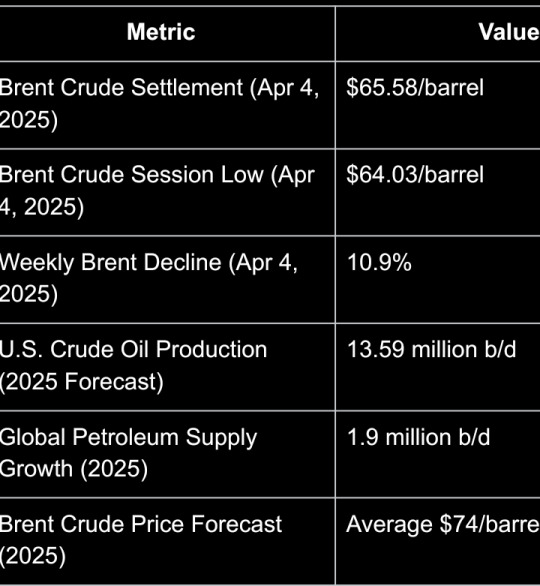
This analysis, grounded in recent reports from Bloomberg, Reuters, EIA, and the World Bank, provides a comprehensive view of the 7% oil price drop, its causes, and implications, ensuring a thorough understanding for professional stakeholders.
Key Citations
Latest Oil Market News and Analysis for April 4
Oil settles down more than 2% after US crude stocks build, OPEC+ hike, US tariffs
EIA raises US oil production forecast for 2025
President Donald J. Trump Establishes the National Energy Dominance Council
Global Commodity Prices Set to Fall Through 2026 Amid Historic Oil Glut
#OilMarketAnalysis#GlobalOilPrices#EnergyMarketTrends#OilPriceDrop#EconomicImplications#GeopoliticalShifts#EnergyDominance#OilAndGasIndustry#CommodityMarketUpdate#FinancialMarketNews#GlobalEconomicTrends
0 notes
Text
youtube
Discover what a new "American Renaissance" means for the U.S. economy, government, and your future! Major opportunities and shifts are coming—don’t miss out!
#MAGA#TrumpAdministration#GeopoliticalShifts#FutureOfAmerica#uspolitics2024#news#money#gold#economy#dollar#silver#youtube#trump#Youtube
1 note
·
View note
Text
What Are The Economic And Political Implications Of The War?

The war in Ukraine is a major global crisis that is having a devastating impact on the people of both Ukraine and Russia, as well as on the global economy and political landscape.
The war began in February 2022 when Russia invaded Ukraine. Russia's stated goal was to "demilitarize and denazify" Ukraine, but many experts believe that the real goal of the invasion was to topple the Ukrainian government and install a pro-Russian regime.
The war in Ukraine has had a number of negative economic implications. The war has caused energy prices to rise, which is leading to higher inflation and slower economic growth around the world. The war has also disrupted supply chains, which is making it more difficult and expensive for businesses to get the goods and materials they need.
The war in Ukraine is also having a significant impact on the global food supply. Ukraine is a major exporter of wheat and other agricultural products. The war has disrupted Ukraine's agricultural sector and has led to a sharp rise in food prices. This is raising the risk of a global food crisis, especially in developing countries.
The war in Ukraine has also had a number of negative political implications. The war has exacerbated tensions between Russia and the West, and it has led to a renewed arms race. The war has also damaged the credibility of international institutions such as the United Nations.
The war in Ukraine is a major challenge for the international community. It is important to find ways to end the war and to bring peace and stability to the region. It is also important to address the underlying causes of the conflict, such as NATO enlargement and Ukraine's pro-Western orientation.
In this blog, we will explore the economic and political implications of the war in Ukraine. We will also discuss what can be done to mitigate the negative impacts of the war and to build a better future for all.
The war in Ukraine has had a significant impact on the global economy and political landscape. The war has caused energy prices to rise, disrupted supply chains, and raised the risk of a global recession. The war has also exacerbated tensions between Russia and the West, and it has led to a renewed arms race.
Economic Implications
The war in Ukraine has had a number of negative economic implications. The war has caused energy prices to rise, which is leading to higher inflation and slower economic growth around the world. The war has also disrupted supply chains, which is making it more difficult and expensive for businesses to get the goods and materials they need.
The war in Ukraine is also having a significant impact on the global food supply. Ukraine is a major exporter of wheat and other agricultural products. The war has disrupted Ukraine's agricultural sector and has led to a sharp rise in food prices. This is raising the risk of a global food crisis, especially in developing countries.
Political Implications
The war in Ukraine has also had a number of negative political implications. The war has exacerbated tensions between Russia and the West, and it has led to a renewed arms race. The war has also damaged the credibility of international institutions such as the United Nations.
The war in Ukraine has also had a significant impact on European politics. The war has led to a renewed focus on European security and defense. It has also led to a closer relationship between Europe and the United States.
Latest Information
The war in Ukraine is now in its seventh month, and there is no end in sight. The fighting has intensified in recent weeks, and the humanitarian crisis is worsening.
The United Nations has warned that the war in Ukraine could lead to a global food crisis. Ukraine is a major exporter of wheat and other agricultural products. The war has disrupted Ukraine's agricultural sector and has led to a sharp rise in food prices.
The war in Ukraine is also having a negative impact on the global economy. The war has caused energy prices to rise, and it has disrupted supply chains. This is leading to higher inflation and slower economic growth around the world.
What Can Be Done To Mitigate The Economic And Political Implications Of The War?
There are a number of things that can be done to mitigate the economic and political implications of the war in Ukraine.
Economic Measures
Governments can take a number of measures to mitigate the economic impact of the war in Ukraine. These measures include:
Providing financial assistance to businesses and households that are struggling to cope with the rising cost of living.
Reducing taxes and regulations to support businesses and stimulate economic growth.
Investing in infrastructure and other projects that will create jobs and boost the economy.
Political Measures
Governments can also take a number of measures to mitigate the political implications of the war in Ukraine. These measures include:
Increasing defense spending to deter Russia from further aggression.
Working with allies to strengthen sanctions on Russia.
Providing humanitarian assistance to Ukraine and other countries affected by the war.
Supporting efforts to bring peace and stability to the region.
The war in Ukraine is a major challenge, but it is important to remember that there is still hope. By working together, the international community can mitigate the economic and political implications of the war and build a better future for all.
Conclusion
The war in Ukraine is a major global challenge. The war is having a devastating impact on the people of Ukraine, and it is also having a significant impact on the global economy and political landscape. It is important to find ways to end the war and to bring peace and stability to the region.
#WarImplications#EconomicImpact#PoliticalConsequences#ConflictAnalysis#GlobalSecurity#GeopoliticalShifts#HumanitarianCrisis#RegionalStability#InternationalRelations#ConflictResolution
0 notes
Text
UN, NATO, and the EU are relics.
The United Nations, NATO, and European Union are relics from a different time when nations were unique in their ability to solve the world's problems. Clearly, that isn't working anymore.
The United Nations was conceived to promote global peace, security, and cooperation, and it has played a crucial role in conflict resolution, humanitarian efforts, and development projects.
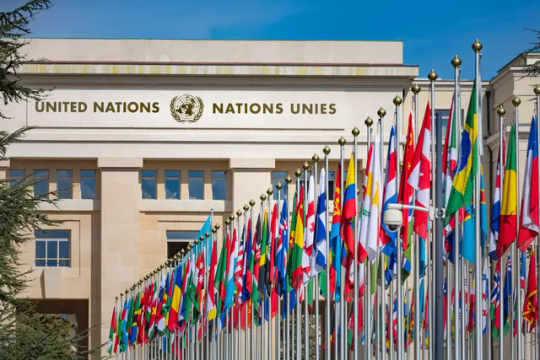
However, the organization's bureaucratic structure and the slow pace of decision-making have at times hindered its effectiveness. As the world grapples with new challenges like climate change and cyber threats, there's a call for the UN to adapt its mechanisms to respond more swiftly and comprehensively to emergent issues.
NATO, formed during the Cold War, was instrumental in preventing large-scale conflicts among its member states. While the organization has contributed to maintaining security in the Euro-Atlantic region, the nature of threats has transformed.
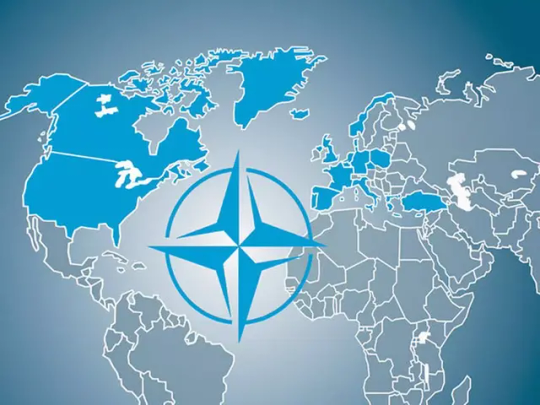
The rise of asymmetric warfare, cyberattacks, and transnational terrorism demands a recalibration of NATO's strategies to address these contemporary challenges effectively.
The European Union, once primarily an economic alliance, has blossomed into a political and economic union aimed at preserving stability and fostering cooperation among its members.
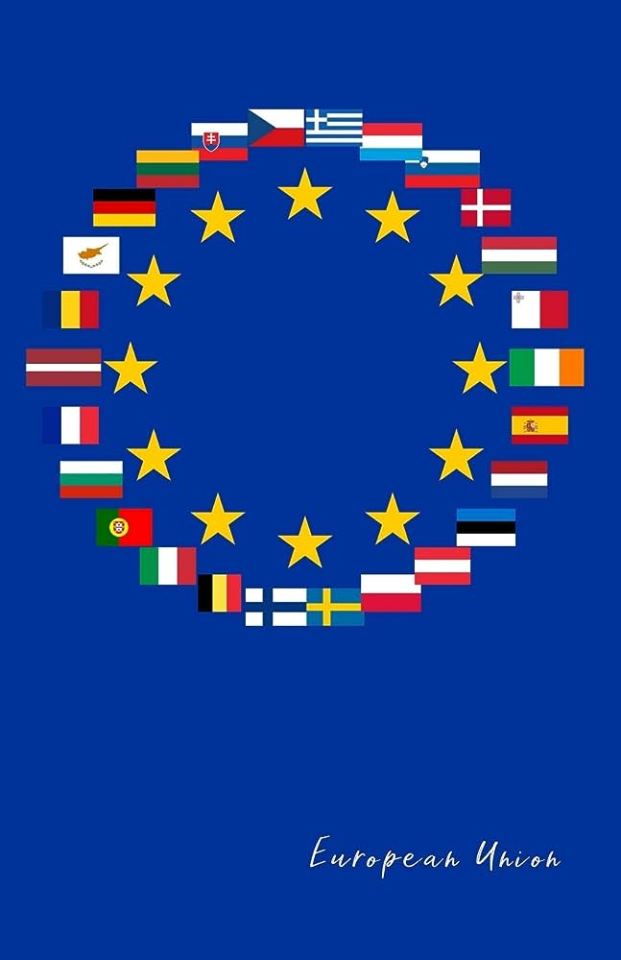
While the EU has been successful in promoting regional integration, recent geopolitical shifts and the Brexit process have sparked debates about its adaptability and the need for streamlined decision-making processes.
#today on tumblr#InternationalOrganizations#GlobalChallenges#AdaptationAndInnovation#Diplomacy#Collaboration#GeopoliticalShifts#WorldPeace#Security#GlobalCooperation#Modernization#InternationalRelations#GlobalIssues#UnitedNations#NATO#EuropeanUnion#ChangingWorld#GlobalDynamics#blog post#new blog#deep thinking
0 notes
Link
#China#diplomaticrifts#geopoliticalshifts#historicalconflicts#India#Kazakhstan#Moscow#Russia#SaudiArabia#StrainedSino-Russianpartnership#Ukraine#WeChat
0 notes
Text
Ukraine's Rapid Advances and the Shifting Dynamics of the Conflict
#UkraineWar#RussiaUkraineConflict#UkrainianCounteroffensive#KurskOffensive#WarDynamics#MilitaryStrategy#GeopoliticalShift#EasternEuropeanConflict#WarAnalysis#BattlefieldDevelopments#MilitaryCasualties#WarfareEvolution#InternationalRelations#DefenseStrategy#MilitaryLogistics#WarReporting#ConflictResolution#GlobalSecurity#WarInEurope#MilitaryIntelligence#DefensePolicyZZ#StrategicWarfare#ArmedConflict#WarStrategy#MilitaryOperations#GeopoliticalAnalysis#DefenseNews#MilitaryAffairs#InternationalSecurity
1 note
·
View note
Text
Muizzu’s Victory in Maldives: A Geopolitical Shift in the Indian Ocean
Muizzu’s recent victory in the Maldives presidential election has garnered much attention from the international community. The election, which saw Ibrahim Mohamed Solih, the incumbent president, being defeated by a large margin, has been hailed as a turning point in the country’s political landscape. However, the significance of this election goes far beyond the Maldives. It represents a major geopolitical shift in the Indian Ocean region, as the small island nation has once again become a battleground for the competing interests of regional powers.
#MaldivesElections#MuizzuForPresident#GeopoliticalShift#IndianOcean#MaldivesPolitics#ElectionResults#MaldivianDemocracy#PressXpress#PX
0 notes
Link
0 notes
Link
https://bit.ly/3Mh2xmI - 🔍 "Perception management", a strategy for influencing foreign opinions, has been reborn in the Pentagon's new Influence and Perception Management Office (IPMO). Initiated during the Reagan era, the tactic came under scrutiny for its potential to spread disinformation, including to domestic audiences. Today, the IPMO seeks to counter foreign disinformation, but its operations remain largely shrouded in secrecy. #PerceptionManagement #IPMO #NationalSecurity 💼 The office's responsibilities involve coordinating military counter-disinformation efforts and could include U.S. propaganda abroad. Its strategies aim to influence foreign leaders' decisions to benefit U.S. interests. The IPMO's acting director, James Holly, brings an extensive intelligence background to the role, strengthening its covert operations. #JamesHolly #USPropaganda #CounterDisinformation 📡 Despite its significant role, the Pentagon never publicly announced the IPMO's establishment. Budget documents reveal the office was created as a response to the shifting geopolitical environment, from counterterrorism to great power competition. The budget, however, doesn't specify the office's funding. #Pentagon #GeopoliticalShift #GreatPowerCompetition 🔏 Perception management isn't just about countering foreign propaganda, but also about advancing the U.S.'s own narrative. Critics of perception management worry about its potential misuse to manipulate U.S. citizens into supporting government policies. The Smith-Mundt Modernization Act, passed in 2012, now allows such communication to be circulated domestically. #PerceptionManagement #SmithMundtAct 🌐 As the global war on terror winds down, the Pentagon is focusing on great power adversaries like Russia and China. In response to increasing disinformation campaigns, offices tasked with combating disinformation have sprung up across the U.S. government. The Pentagon's IPMO distinguishes itself with its level of secrecy and highly classified work. #Pentagon #Disinformation #GlobalPolitics 💻 The IPMO's strategic position within the Pentagon hierarchy indicates its work extends beyond messaging to intelligence. Fast detection and counteraction of disinformation are critical in today's digital age. Yet, the Defense Department has not responded to requests for comment on its counter-disinformation efforts.
#PerceptionManagement#IPMO#NationalSecurity#JamesHolly#USPropaganda#CounterDisinformation#Pentagon#GeopoliticalShift#GreatPowerCompetition#SmithMundtAct#Disinformation#GlobalPolitics#DigitalAge#DefenseDepartment#CyberSecurity#pentagon#influence#management#strategy#opinion#disinformation#audiences#today#operation#nationalsecurity#leaders#leader
0 notes
Text
Diving into the Ukraine Conflict
https://www.youtube.com/watch?v=cW6LjA1VyKg 🔔 Hit that subscribe button for exclusive access to thought-provoking podcasts, self-growth tips, inspiring guidance, empowerment for bold spirits, and more! https://www.youtube.com/@Biohack-it/?sub_confirmation=1 🔗 Stay Connected With Us. 👉 Instagram (Biohack-it): https://ift.tt/jxdbHMu 👉 Instagram (Iman Hassan): https://ift.tt/Qq8GUAh 👉 Website: http://biohack-it.com/ ============================= 🎬 Recommended Playlist 👉 Season One https://www.youtube.com/playlist?list=PLQWTIuStNqibK2-K-T3GfnIxdLlK_KXMD 🎬 WATCH OUR OTHER VIDEOS: 👉 Revolutionize Your Health with Dr. Vincent Pedre: The Transformative Power of Plant Medicine https://www.youtube.com/watch?v=rcvHjUFT0-w 👉 Why Modern Relationships Fail: Expert Insights from Jillian Turecki https://www.youtube.com/watch?v=qseduflV5oo 👉 Carolina Reis, PhD on Reversing Aging and Keeping Skin Healthy https://www.youtube.com/watch?v=DOf9SqMYtqg 👉 Dr. John Kim on Debunking Detoxification Myths | Biohack-it https://www.youtube.com/watch?v=_kuQtZ4A_Ao 👉 Inside the Operating Room with New York's Hottest Plastic Surgeons https://www.youtube.com/watch?v=Sku8y9y-AuM ============================= ✅ About Biohack-it. Welcome to Biohack-it! Immerse yourself in a world of authenticity, empowerment, and innovation. Biohack-it, led by Iman Hasan, is a transformational journey of personal development and self-discovery. Join us to nurture bold spirits, ignite meaningful conversations, and celebrate your true self. We're not just storytellers; we're architects for change. Biohack-it isn't your typical wellness podcast. It's a beacon for the bold and curious, craving authenticity. Discover conversations that challenge the status quo and empower your deepest self. With Iman Hasan's guidance, each episode becomes a chapter in your self-discovery journey. 🔔 Subscribe & stay tuned for exclusive content on captivating podcasts, self-discovery tips, nurturing bold spirits, insightful guidance, and more! https://www.youtube.com/@Biohack-it/?sub_confirmation=1 ================================= #geopolitics #americanwar #geopoliticalshift ⚠️ DISCLAIMER: The content shared on Biohack-it is for informational purposes only. It's not intended as medical advice, diagnosis, or treatment. Always consult with a professional for health-related inquiries. Copyright Notice: This video and our YouTube channel contain dialogue, music, and images that are the property of Biohack-it. You are authorized to share the video link and channel and embed this video in your website or others as long as a link back to our YouTube channel is provided. © Biohack-it via Biohack-it https://www.youtube.com/channel/UCMUSLVUIxXLqZ_dqV_FvMeg December 19, 2024 at 12:45AM
#healthyliving#weightloss#healthyhabits#biohack-it#holistichealth#healthandwellness#womenshealth#healthtips#keto
0 notes